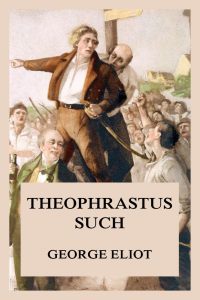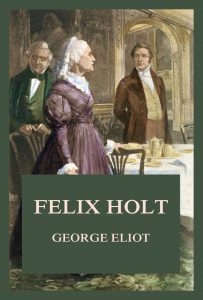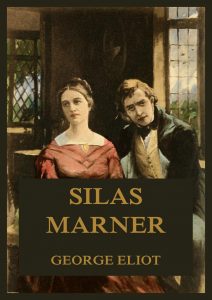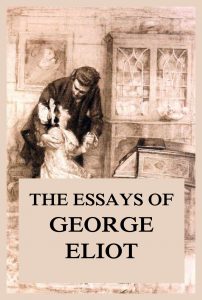-
Neueste Beiträge
Neueste Kommentare
- Jazzybee bei Geheimnisse einer Kaiserin
- Heinz Ludwig ErnstH bei Geheimnisse einer Kaiserin
- dinozeros bei Der Idiot
- Gudrun Philipp bei Der Winterkrieg – Finnland 1939/1940
- Thomas Wrage bei Der Winterkrieg – Finnland 1939/1940
Meta
Archive
- Juni 2024
- Mai 2024
- April 2024
- März 2024
- Februar 2024
- Januar 2024
- Dezember 2023
- November 2023
- Oktober 2023
- September 2023
- August 2023
- Juli 2023
- Juni 2023
- Mai 2023
- April 2023
- März 2023
- Februar 2023
- Januar 2023
- Dezember 2022
- November 2022
- Oktober 2022
- August 2022
- Juli 2022
- Juni 2022
- Mai 2022
- April 2022
- März 2022
- Februar 2022
- Januar 2022
- Dezember 2021
- November 2021
- Oktober 2021
- September 2021
- August 2021
- Juli 2021
- Juni 2021
- Mai 2021
- April 2021
- März 2021
- Februar 2021
- Januar 2021
- Dezember 2020
- November 2020
- Oktober 2020
- September 2020
- August 2020
- Juli 2020
- Juni 2020
- Mai 2020
- April 2020
- März 2020
- Februar 2020
- Januar 2020
- Dezember 2019
- November 2019
- Oktober 2019
- September 2019
- August 2019
- Juli 2019
- Juni 2019
- Mai 2019
- April 2019
- März 2019
- Februar 2019
- Januar 2019
- Dezember 2018
- November 2018
- Oktober 2018
- September 2018
- August 2018
- Juli 2018
- Juni 2018
- Mai 2018
- April 2018
- März 2018
- Februar 2018
- Januar 2018
- Dezember 2017
- November 2017
- Oktober 2017
- September 2017
- August 2017
- Juli 2017
- Juni 2017
- Mai 2017
- April 2017
- März 2017
- Januar 2017
- Dezember 2016
- November 2016
- Oktober 2016
- Juni 2016
- November 2011
Kategorien
- American History (English) (291)
- Alaska (1)
- American Revolution (3)
- California (27)
- Civil War (21)
- Connecticut (6)
- District of Columbia (9)
- Florida (4)
- Georgia (4)
- Historic Highways (12)
- Historical Travelogues (16)
- Illinois (9)
- Indiana (2)
- Maryland (6)
- Massachusetts (24)
- Michigan (7)
- Minnesota (1)
- Missouri (4)
- New Jersey (3)
- New York (25)
- North Carolina (3)
- Ohio (4)
- Oregon (1)
- Pennsylvania (9)
- Tennessee (1)
- Texas (16)
- The Presidents (49)
- Utah (2)
- Washington (3)
- Wisconsin (5)
- Ancient History (English) (13)
- Antike Philosophie (3)
- Astrologie (1)
- Biographies (English) (48)
- Chinesische Philosophie (3)
- Christmas (English) (18)
- Classics of Fiction (English) (663)
- Alcott, Louisa May (29)
- Austen, Jane (11)
- Barrie, James M. (14)
- Baum, L. Frank (17)
- Carroll, Lewis (7)
- Cather, Willa (4)
- Chesterton, G. K. (37)
- Chopin, Kate (4)
- Coleridge, Samuel Taylor (11)
- Collins, Wilkie (39)
- Dickens, Charles (20)
- Doyle, Arthur Conan (46)
- Eliot, George (14)
- Frederic, Harold (12)
- Frost, Robert (1)
- Gibran, Khalil (0)
- Goethe, Johann Wolfgang von (2)
- Hardy, Thomas (11)
- Hawthorne, Nathaniel (3)
- Hedin, Sven (6)
- Hodgson-Burnett, Frances (25)
- Hoffmann, E.T.A. (1)
- Hope, Anthony (31)
- Howells, William Dean (72)
- Hugo, Victor (25)
- Irving, Washington (12)
- Kneipp, Sebastian (2)
- Lang, Andrew (31)
- Longfellow, Henry Wadsworth (1)
- Melville, Herman (9)
- Montgomery, Lucy Maud (15)
- Scott, Sir Walter (8)
- Shelley, Mary Wollstonecraft (8)
- Stevenson, Robert Louis (34)
- Stories For Sleepless Nights (1)
- Stratton-Porter, Gene (16)
- Thoreau, Henry David (1)
- Toomer, Jean (2)
- Twain, Mark (33)
- Verne, Jules (6)
- Webster, Jean (8)
- Wells, H.G. (9)
- Wharton, Edith (1)
- Wollstonecraft, Mary (7)
- Culture, Sports & Entertainment (English) (1)
- Deutscher Novellenschatz (24)
- Deutschland unter Kaiser Wilhelm II. (8)
- Die Geschichte des Eisens (10)
- Die Schriften der Kirchenväter (104)
- Die verlorenen Bücher der Bibel (30)
- Elisabeth von Österreich – Die Kollektion (4)
- European History (English) (18)
- Fairy Tales and Mythology (English) (3)
- Kinderbücher (15)
- Krimis aus der goldenen Zeit (10)
- Lateinische Klassiker (10)
- Ammianus Marcellinus (1)
- Apuleius (2)
- Boethius (1)
- Catullus (1)
- Celsus (1)
- Cicero (2)
- Julius Caesar (2)
- Märchen & Sagen (13)
- Mathematik Zahlentrainer (38)
- Meisterwerke der Literatur (1.050)
- A (29)
- Achleitner-Arthur (0)
- Adler, Emma (1)
- Adlersfeld-Eufemia von (1)
- Aho-Juhani (0)
- Alcott, Louisa May (4)
- Alexis-Willibald (0)
- Alighieri-Dante (2)
- Allen-James (1)
- Altenberg-Peter (3)
- Andersen-Hans Christian (1)
- Andrejew-Leonid (1)
- Anzengruber-Ludwig (6)
- Arbiter-Gaius Petronius (1)
- Aretz-Gertrude (1)
- Aristophanes (1)
- Aristoteles (1)
- Arndt-Ernst Moritz (0)
- Arnim – Achim von (1)
- Arnim-Bettina von (0)
- Äsop (1)
- Auerbach-Berthold (1)
- Augustinus-Aurelius (1)
- Aurel-Marc (1)
- B (70)
- Bacon, Francis (1)
- Bahr-Hermann (10)
- Ball, Hugo (1)
- Balzac-Honoré de (4)
- Barbusse-Henri (1)
- Bassewitz-Gerd von (1)
- Baudelaire-Charles (1)
- Bauer, Karoline (1)
- Bauer-Otto (0)
- Baum-L. Frank (2)
- Bebel-August (0)
- Bechstein, Ludwig (1)
- Beck-Jürgen (2)
- Beecher-Stowe-Harriet (1)
- Benjamin-Walter (0)
- Berend-Alice (0)
- Bernhardi-Sophie (0)
- Bettauer-Hugo (2)
- Birt – Theodor (0)
- Bismarck-Otto von (1)
- Bjornson-Bjornstjerne (0)
- Blei-Franz (0)
- Bleibtreu-Karl (4)
- Boccaccio-Giovanni (1)
- Böhlau-Helene (0)
- Bote-Hermann (1)
- Boy Ed, Ida (8)
- Boyer-Jean Baptiste (1)
- Braun-Lily (0)
- Brentano-Clemens (8)
- Bronté-Charlotte (1)
- Bruun-Laurids (0)
- Büchner-Georg (2)
- Büchner-Luise (1)
- Bulwer-Lytton-Edward (1)
- Bunyan, John (3)
- Burckhardt-Jacob (0)
- Bürger-Gottfried August (1)
- Burnett-Frances Hodgson (1)
- Busch-Wilhelm (7)
- Byron-George (0)
- C (32)
- Carroll-Lewis (1)
- Carus-Carl Gustav (0)
- Chaucer-Geoffrey (1)
- Chesterton-Gilbert Keith (1)
- Choderlos-P.A. de Laclos (1)
- Christ-Lena (5)
- Cicero (2)
- Claudius-Matthias (1)
- Clausewitz-Carl von (1)
- Colerus-Egmont (3)
- Collins-Wilkie (2)
- Collodi-Carlo (1)
- Connell-Richard (1)
- Conrad-Joseph (3)
- Conrad-Michael Georg (1)
- Conwell-Russell (1)
- Cooper-James-Fenimore (5)
- Corvin-Otto von (1)
- Couperus-Louis (0)
- Crusenstolpe-Magnus Jacob (1)
- D (73)
- Dahn-Felix (0)
- Darwin-Charles (1)
- Daudet-Alphonse (10)
- Daumer-Georg Friedrich (1)
- Dauthendey-Max (8)
- Defoe-Daniel (3)
- Delbrück-Hans (0)
- Dickens-Charles (13)
- Diderot-Denis (3)
- Dohm-Hedwig (4)
- Dostojewski-Fjodor (8)
- Doyle-Arthur-Conan (5)
- Drews-Arthur (1)
- Droste-Hülshoff-Annette (2)
- Droysen-Johann Gustav (1)
- Dumas-Alexandre (9)
- Duncker-Dora (4)
- E (43)
- Ebers-Georg (4)
- Ebner-Eschenbach-Marie (0)
- Eckstein-Ernst (1)
- Eichendorff-Joseph von (2)
- Elvestad-Sven (8)
- Emmerich-Ferdinand (7)
- Engel-Georg (4)
- Engels-Friedrich (1)
- Ernst-Otto (0)
- Ernst-Paul (0)
- Ertl-Emil (0)
- Eschenbach-Wolfram von (1)
- Eschstruth-Nataly von (9)
- Essig-Hermann (3)
- Eucken-Rudolf (0)
- Eulenburg-Philipp zu (1)
- Euripides (1)
- Eyth-Max (1)
- F (73)
- Faber-Kurt (5)
- Falke-Gustav (6)
- Federer-Heinrich (4)
- Felder-Franz Michael (1)
- Feuerbach-Ludwig (1)
- Fichte-Johann Gottlieb (0)
- Fielding-Henry (2)
- Flammarion-Camille (1)
- Flaubert-Gustave (1)
- Fletcher-Joseph Smith (5)
- Fock-Gorch (2)
- Fontane-Theodor (15)
- Forster-Georg (1)
- Fouqué-Friedrich-de-Motte (0)
- Frankau, Julia (1)
- Franklin-Benjamin (1)
- Franzos-Karl Emil (8)
- Frapan, Ilse (2)
- Freud-Sigmund (5)
- Freytag-Gustav (7)
- Friedell-Egon (4)
- G (72)
- Gaboriau-Emile (1)
- Galen-Philipp (1)
- Ganghofer-Ludwig (15)
- Garschin-Wsewolod (1)
- Gellert-Christian Fürch. (1)
- George-Stefan (1)
- Gerhardt-Paul (1)
- Gerstäcker-Friedrich (3)
- Gibbon-Edward (1)
- Gilman-Charlotte-Perkins (1)
- Gjellerup-Karl Adolph (5)
- Glauser-Friedrich (7)
- Goethe-Johann W. von (6)
- Gogol-Nikolai (3)
- Goldoni-Carlo (1)
- Gontscharow-Iwan (1)
- Gorki-Maxim (4)
- Gotthelf-Jeremias (6)
- Gregorovius-Ferdinand (1)
- Grimmelshausen-Hans Jakob (1)
- Günther-Agnes (1)
- Gutzkow-Karl (10)
- H (66)
- Hahn-Hahn-Ida Gräfin (5)
- Hansjakob-Heinrich (3)
- Hasek-Jaroslav (1)
- Hauff-Wilhelm (5)
- Hebel-Johann Peter (2)
- Hedin, Sven (2)
- Heer-Jakob Christoph (7)
- Hegel-Georg Wilhelm (4)
- Heiberg-Hermann (5)
- Heine-Heinrich (2)
- Herder-Johann Gottfried (1)
- Herodot (1)
- Hillern-Wilhelmine von (1)
- Hindenburg-Paul von (1)
- Hoffmann-Andreas Gottlieb (1)
- Hoffmann-E.T.A. (7)
- Hofmannsthal-Hugo von (7)
- Hölderlin-Friedrich (2)
- Holub-Emil (1)
- Homer (2)
- Horvath-Ödön von (1)
- Hugo-Victor (2)
- Huysmans-Joris Karl (1)
- I (10)
- Ibsen-Henrik (7)
- Irving-Washington (3)
- J (6)
- Jensen-Wilhelm (6)
- K (61)
- Kafka-Franz (3)
- Kant-Immanuel (2)
- Katharina-die-Große (1)
- Keats-John (1)
- Keller-Gottfried (4)
- Keller-Paul (7)
- Kempen-Thomas von (1)
- Keyserling-Eduard von (6)
- Kierkegaard-Sören (3)
- Kipling-Rudyard (4)
- Klabund (1)
- Kleist-Heinrich von (2)
- Klingemann-August (1)
- Klinger-Friedrich Maximilian (1)
- Klopstock-Friedrich Gottlieb (1)
- Kneipp, Sebastian (2)
- Knigge-Adolf Freiherr von (1)
- Koch-Rosalie (1)
- Korolenko-Wladimir (1)
- Kotzebue, August von (1)
- Kraft-Robert (5)
- Kraus-Karl (4)
- Kropotkin, Pjotr (0)
- Kropotkin-Pjotr (2)
- Kugler-Franz (1)
- Kurz-Hermann (3)
- Kyber-Manfred (2)
- L (45)
- La Roche-Sophie von (1)
- Lafontaine-Jean de (1)
- Lagerlöf-Selma (4)
- Landsberger-Artur (7)
- Laßwitz-Kurd (1)
- Laube-Heinrich (6)
- Lermontow-Michail (1)
- Lessing-Gotthold Ephraim (3)
- Lichtenberg-Georg Christoph (1)
- Lienhard-Friedrich (4)
- Lindau-Paul (1)
- Lofting-Hugh (2)
- Löns-Hermann (2)
- Loti-Pierre (2)
- Lovecraft, H. P. (3)
- Ludwig-Otto (3)
- Luther-Martin (3)
- M (105)
- Macaulay-Thomas B. (2)
- MacDonald-George (1)
- Machiavelli-Niccolo (2)
- Mackay-John Henry (6)
- Mann, Heinrich (10)
- Manzoni-Alessandro (1)
- Marlitt-Eugenie (9)
- Marx-Karl (2)
- Maupassant-Guy de (1)
- Mauthner-Fritz (0)
- May-Karl (37)
- Meding-Oskar (9)
- Mereschkowski-Dmitri (1)
- Meyer-Eduard (0)
- Meyrink-Gustav (1)
- Milton-John (1)
- Molière (4)
- Mommsen-Theodor (6)
- Montaigne-Michel de (1)
- Morgenstern-Christian (1)
- Mörike-Eduard (3)
- Moritz-Karl Philipp (1)
- Morus-Thomas (1)
- Moszkowski-Alexander (2)
- Mühsam-Erich (1)
- Multatuli (1)
- Muther-Richard (1)
- N (13)
- Nestroy-Johann (2)
- Niese-Charlotte (4)
- Nietzsche-Friedrich (5)
- Northup-Solomon (1)
- Novalis (1)
- O (14)
- Ohnet-Georges (9)
- Ossietzky-Carl von (0)
- Otto-Louise (4)
- Ovid (1)
- P (21)
- Panizza-Oskar (3)
- Petrarca-Francesco (1)
- Pfalz-Liselotte von der (1)
- Philon (0)
- Platon (5)
- Poe-Edgar Allan (1)
- Potapenko-Ignatji (1)
- Prévost-Marcel (5)
- Puschkin-Alexander (2)
- Pyle, Ernie (2)
- R (41)
- Rabelais-Francois (1)
- Rellstab-Ludwig (2)
- Retcliffe-Sir John (2)
- Reymont-Wladyslaw (1)
- Rhoden-Emmy von (1)
- Richthofen-Manfred von (1)
- Rilke-Rainer Maria (2)
- Ringelnatz-Joachim (2)
- Rohlfs-Gerhard (1)
- Rolfes, Eugen (1)
- Rosegger-Peter (11)
- Rosen-Erwin (1)
- Rostand-Edmond (2)
- Roth-Joseph (8)
- Rousseau-Jean Jacques (3)
- Rückert-Friedrich (2)
- S (102)
- Sade-Marquis de (1)
- Saint Exupéry, Antoine de (1)
- Salgari-Emilio (1)
- Sapper-Agnes (1)
- Scheerbart-Paul (10)
- Schickele-René (4)
- Schiller-Friedrich (11)
- Schlegel-Friedrich (1)
- Schlenther-Paul (1)
- Schnitzler-Arthur (2)
- Schopenhauer-Arthur (3)
- Schreckenbach-Paul (2)
- Schröder-Devrient-Wilhelmine (1)
- Schubin, Ossip (1)
- Schurig-Arthur (1)
- Schwab-Gustav (0)
- Scott-Sir Walter (1)
- Semjonow-Sergej (1)
- Seneca-Lucius Annaeus (0)
- Seume-Johann Gottfried (1)
- Shakespeare-William (16)
- Shelley-Mary Wollstonecraft (1)
- Sienkiewicz-Henryk (1)
- Silesius-Angelus (1)
- Simmel-Georg (0)
- Simrock-Karl (2)
- Sonnleitner-Alois Theodor (3)
- Sophokles (5)
- Spengler-Oswald (2)
- Spindler-Karl (3)
- Spinoza-Baruch de (2)
- Sprenger-Jakob (1)
- Spyri-Johanna (0)
- Stael-Germaine de (1)
- Steiner-Rudolf (2)
- Stendhal (3)
- Sterne-Laurence (1)
- Stevenson-Robert Louis (1)
- Stifter-Adalbert (1)
- Stoker-Bram (1)
- Storm-Theodor (5)
- Straßburg-Gottfried von (1)
- Stucken-Eduard (2)
- Suttner-Bertha von (2)
- Swift-Jonathan (1)
- T (38)
- Tagore-Rabindranath (1)
- Thoma-Ludwig (5)
- Thoreau-Henry David (1)
- Tieck-Ludwig (1)
- Tolstoi-Leo (11)
- Treller-Franz (1)
- Tschechow-Anton (6)
- Tucholsky-Kurt (3)
- Turgenew-Ivan (2)
- Twain-Mark (7)
- U (10)
- Ungar-Hermann (0)
- Ury-Else (10)
- V (28)
- Verne-Jules (26)
- Voltaire (1)
- W (63)
- Wagner-Richard (1)
- Wallace-Edgar (46)
- Wallace-Lewis (1)
- Walpole-Horace (1)
- Wassermann-Jakob (2)
- Weber-Max (0)
- Wells-H. G. (2)
- Whitman-Walt (1)
- Wilde-Oscar (5)
- Wolzogen-Caroline von (1)
- Wörishöffer-Sophie (1)
- Wundt-Wilhelm (1)
- Wyss-Johann David (1)
- Y (1)
- Young, Filson (1)
- Z (30)
- Zola-Emile (18)
- Zweig-Stefan (11)
- A (29)
- Middle East History (English) (20)
- Mind Power (English) (30)
- Opern der Welt (11)
- Philosophie (4)
- Philosophy & Politics (English) (151)
- 17th Century (1)
- 18th Century (49)
- 19th Century (61)
- 20th Century (2)
- Ancient (24)
- Middle Ages (2)
- Renaissance (14)
- Poetik (4)
- Recht (4)
- Religionen der Welt (92)
- Calvin, Johannes (17)
- Sachbücher (30)
- Sam Caine (Krimiserie) (5)
- Schlachten des II. Weltkriegs (45)
- Science (English) (1)
- 19th Century (1)
- Sport (0)
- The Sacred Books (English) (298)
- Astrology (2)
- Biblical Reference (3)
- Biblical Studies & Commentaries (61)
- Buddhism (27)
- Children's Great Bible Texts (8)
- Christology (18)
- Church History (63)
- Divination (4)
- Ethnic & Tribal (6)
- Freemasonry (18)
- Gnosticism (3)
- Judaism (3)
- Life of Jesus (2)
- Mariology (4)
- Mysticism (33)
- Occultism (22)
- Prayers & Sermons (3)
- Protestant (1)
- Spirituality (16)
- The Sacred Writings (33)
- Theosophy (3)
- Yoga (13)
- Weihnachten (11)
- Weltgeschichte (14)
- 18. Jahrhundert (1)
- 19. Jahrhundert (9)
- Altertum (0)
- I. Weltkrieg (3)
- II. Weltkrieg (1)
- World History (English) (17)
- American History (English) (291)
Archiv der Kategorie: Eliot, George
George Eliot’s Life (All three volumes)
George Eliot’s Life (All three volumes) – George Eliot
As if a strong, delightful water that we knew only as a river appeared in the character of a fountain; as if one whom we had wondered at as a good walker or inexhaustible pedestrian, began to dance; as if Mr. Bright, in the middle of a public meeting, were to oblige the company with a song, — no, no, not like that exactly, but like something quite new, — is the appearance of George Eliot in the character of a poet. ” The Spanish Gypsy,” a poem in five books, originally written, as a prefatory note informs us, in the winter of 1864-65, and, after a visit to Spain in … Read more.../Mehr lesen ...
Veröffentlicht unter Classics of Fiction (English), Eliot, George
Schreib einen Kommentar
Poems
Poems – George Eliot
As if a strong, delightful water that we knew only as a river appeared in the character of a fountain; as if one whom we had wondered at as a good walker or inexhaustible pedestrian, began to dance; as if Mr. Bright, in the middle of a public meeting, were to oblige the company with a song, — no, no, not like that exactly, but like something quite new, — is the appearance of George Eliot in the character of a poet. ” The Spanish Gypsy,” a poem in five books, originally written, as a prefatory note informs us, in the winter of 1864-65, and, after a visit to Spain in 1867, rewritten and amplified, dominates … Read more.../Mehr lesen ...
Veröffentlicht unter Classics of Fiction (English), Eliot, George
Schreib einen Kommentar
Theophrastus Such
Theophrastus Such – George Eliot
Wherever Mrs. Eliot places her touch, she leaves the impression of the profound insight, the serene wisdom, the fine observation, and the subtle humor which so graciously signalize her nature. The short essays in this book are stamped with all of the writer’s peculiarities of thought and style, and are witty, suggestive, and delightful. The book is studded with fine thoughts and fine expressions. It is the peculiar characteristic of George Eliot’s observations—and one exemplified in this her last work perhaps more than in any previous one—that she always puts in the best language thoughts which appear to have been in the reader’s mind often before. In these pages they are crystallized.
Theophrastus … Read more.../Mehr lesen ...
Veröffentlicht unter Classics of Fiction (English), Eliot, George
Schreib einen Kommentar
Felix Holt
Felix Holt – George Eliot
‘ Felix Holt, the Radical,’ appeared in 1866. The title, and what by courtesy could be regarded as the main plot, have reference to politics, but most of the incidents and illustrations of character relate to religious and social peculiarities rather than to the party feelings of Tories, Whigs or dicals. Though inferior in sustained interest to the other English tales of the author, ‘Felix Holt’ has passages of great vigour, and some exquisitely drawn characters—we may instance that of Rufus Lyon, a Dissenting minister—and also some fine, pure and natural description. This is the brightest, the least penetrated with inner melancholy, of all George Eliot’s stories.
Felix Holt.
ISBN: 9783849673895.
Available at… Read more.../Mehr lesen ...
Veröffentlicht unter Classics of Fiction (English), Eliot, George
Schreib einen Kommentar
Daniel Deronda
Daniel Deronda – George Eliot
We recognize George Eliot’s distinctive excellences all through: we never detect a flat or trivial mood of mind: if anything, the style is more weighty and piquant than ever, we may even say loaded with thought. Nobody can resort to the time-honourcd criticism that the work would have been better fur more pains, for labour and care are conspicuous throughout, and labour and care which always produce suitable fruit. But the fact is that the reader uever—or so rarelv as not to affect his general posture of mind—feels at home. The author is ever driving at something foreign to his habits of thought. The leading persons—those with whom her sympathies lie—are guided by Interests and … Read more.../Mehr lesen ...
Veröffentlicht unter Classics of Fiction (English), Eliot, George
Schreib einen Kommentar
Silas Marner
Silas Marner – George Eliot
‘Silas Marner’ is definitely one of the authoress’s most beautiful stories, the most poetical of them all—the tale of Silas Marner, who deems himself deserted and rejected utterly of God and man and to whom, in his deepest misery, in place of lost gold, a little foundling girl is sent. This tale is the most hopeful of all her books. The contemplation of the renewal of enterprise and energy, which comes with little children, and of the promise with which each new generation gilds the crown of honour for its sires, is pleasant and grateful to her
Silas Marner.
ISBN: 9783849673871.
Available at amazon.com and other venues.
Plot summary of Silas Marner … Read more.../Mehr lesen ...
Veröffentlicht unter Classics of Fiction (English), Eliot, George
Schreib einen Kommentar
Middlemarch
Middlemarch – George Eliot
To many critics Middlemarch is the greatest novel George Eliot ever wrote. Its scope, its variety, its maturity and insight, are indubitable. Yet to others it lacks something of the charm and spontaneity of the author’s earlier works, and its very inclusiveness and scope lead to a certain confusion of plan- and blurring of outline that mark it as artistically imperfect. Whichever view is correct, the novel is admittedly great. Written late in George Eliot’s career, it is at once weighty with her considered evaluation of the essential factors in life and rich in her observation and experience of human nature. The plot is the most involved of any that the author has presented, and the … Read more.../Mehr lesen ...
Veröffentlicht unter Classics of Fiction (English), Eliot, George
Schreib einen Kommentar
Romola
Romola – George Eliot
Romola, one of the best-known novels by George Eliot (C. P. P.), was originally published in 1863. The scene is in Florence, Italy, at the end of the fifteenth century. Roinola, the heroine, a daughter of the Italian family of Bardi, marries Tito Melema, a Greek, but the marriage proves a failure, and she sacrifices herself in devotion to the people during the plague. A marvellously able story of the revival of the taste and beauty and freedom of Hellenic manners and letters, under Lorenzo di Medici and the scholars of his Court, side by side with the revival of Roman virtue, and more than the ancient austerity and piety, under the great Dominican, Savonarola. The … Read more.../Mehr lesen ...
Veröffentlicht unter Classics of Fiction (English), Eliot, George
Schreib einen Kommentar
The Essays of George Eliot
The Essays of George Eliot – George Eliot
George Eliot prepared for the press a few essays which she had written before she became famous. These essays she left, with the injunction that no fugitive writings of hers prior to 1857 should be republished, other than those thus prepared. Then they have been published as a volume in Harper’s edition of the Works of George Eliot. The subjects presented are, Worldliness and Other-Worldliness, (the poet Young.) German Wit, (Henrich Heine). Evangelical Teaching, (Dr. Cumming.) Influence of Rationalism, (Mr. Lecky’s History.) Natural History of German Life, (The books of W. H Richl.) and an Address to Working Men, by Felix Holt.
The Essays of George Eliot.… Read more.../Mehr lesen ...
Veröffentlicht unter Classics of Fiction (English), Eliot, George
Schreib einen Kommentar
Scenes of Clerical Life
Scenes of Clerical Life – George Eliot
The first of the three stories, ‘The Sad Fortunes of the Reverend Amos Barton,’ is the slightest and simplest. Mr. Barton, a curate, with an income of eighty pounds a-year, with an angelic but sickly wife and a host of hungry little children, allows himself to be duped by the title of a ‘Countess Czerlaski,’ the handsome English widow of a Polish dancing-master. The countess quarrels with her brother, Mr. Bridmain, and throws herself on the hospitality of the Bartons. Her visit lasts beyond all reasonable time, the unfortunate couple are eaten up by the expense of providing for her, Mr. Barton’s character is aspersed on account of his kindness to her, and … Read more.../Mehr lesen ...
Veröffentlicht unter Classics of Fiction (English), Eliot, George
Schreib einen Kommentar




